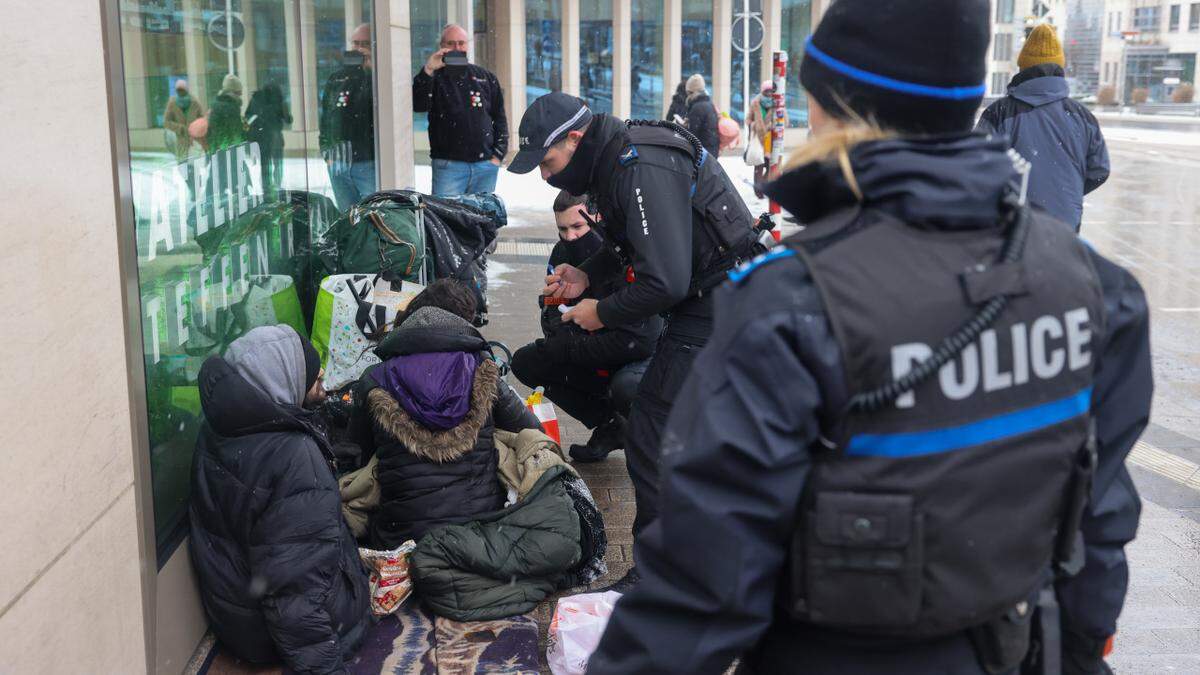The State Council has raised several objections to a draft law which plans to give police further powers to remove people blocking public roads and buildings.
The existing Platzverweis law, introduced in 2022, restricts police officers in moving on people who obstruct entrances to public or private buildings. However, the coalition government vowed to review the legislation after taking office in 2023, arguing it did not go far enough.
Under a new draft law, police officers will be given powers to intervene in a range of new scenarios, including for obstructing traffic on public roads and in cases when an individual is deemed to be “disturbing the public peace”.
Officers will also be able to forcibly remove people who fail to comply with an initial warning to move away, and will be given powers to ban the individual from entering within a radius of one kilometre of the area for a period of 48 hours.
For repeated non-compliance – defined as twice within one month – the local mayor may also order a temporary ban on a person entering the premises for a maximum period of 30 days, and issue a fine of up to €250.
State council not satisfied
However, the State Council, Luxembourg’s de facto upper chamber, is not satisfied with the draft law and has issued several “formal oppositions” that will now need to be resolved before the legislation can be passed in parliament.
The terms under which the police can intervene when an individual is deemed to be “disturbing the public peace” are too vague to restrict the public freedom enshrined in the constitution and do not provide sufficient legal certainty, the body said.
Improvements must also be made to the provision that states that the police can issue warnings to people who harass passers-by on the public street and in publicly accessible places.
Harassment of a person or harassment by a person is difficult to determine using objective criteria, notes the Council of State, but is the result of a subjective assessment by both the persons involved and the police. The current draft bill could potentially violate the constitution in this regard, the council added.
The council has also raised an objection to the planned temporary ban from a premises, which it claims would interfere more with fundamental rights and civil liberties than a straightforward expulsion order. The move also goes beyond the intention of merely tightening the existing ban, the upper chamber said.
“The police must cite facts that suggest that the targeted person will commit a criminal offence in the place where they are staying at the time of the measure,” a report by the body states. However, the government’s draft law does not mention any risk of committing criminal offences, a condition that the Council of State believes is important to ensure the proportionality of the measure.
The draft text is generally lacking detail on the criteria under which the mayor can impose such a temporary ban, the body said, calling for a clearer framework to be outlined for the powers of the mayor.
Last year Luxembourg’s Attorney General Martine Solovieff criticised the draft bill, and said she expected the State Council to raise objections.
(This article was originally published by the Luxemburger Wort. Translation and editing by John Monaghan)
